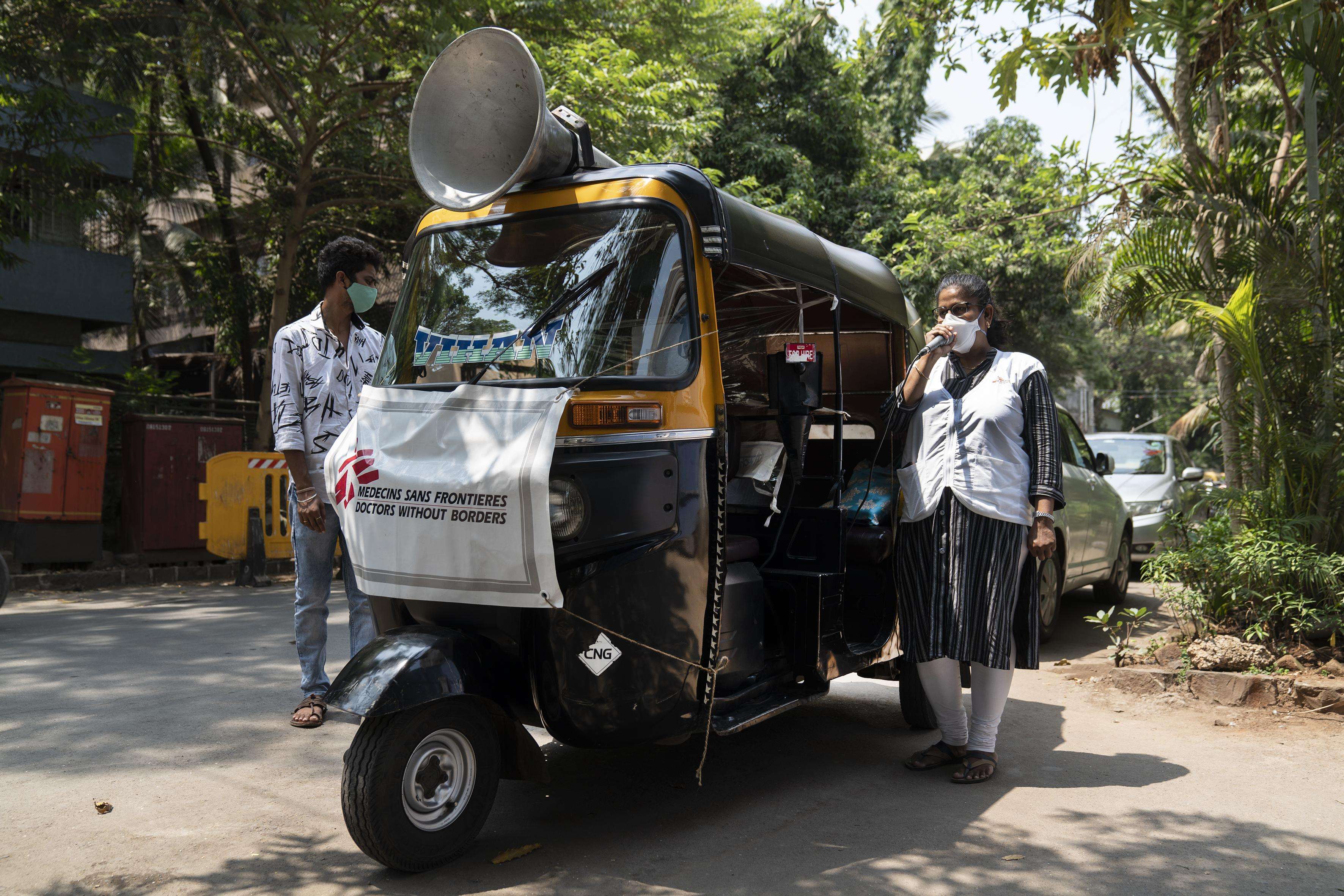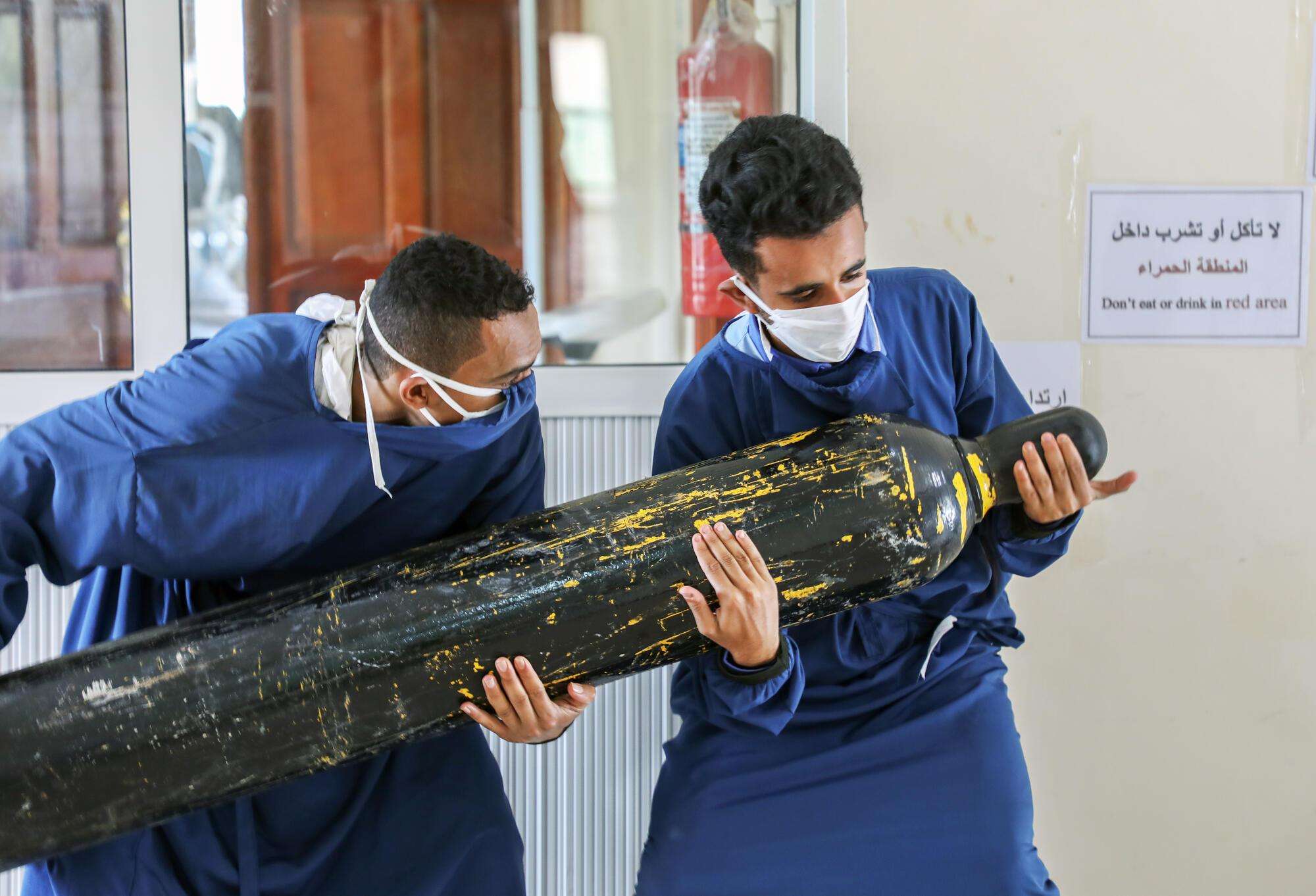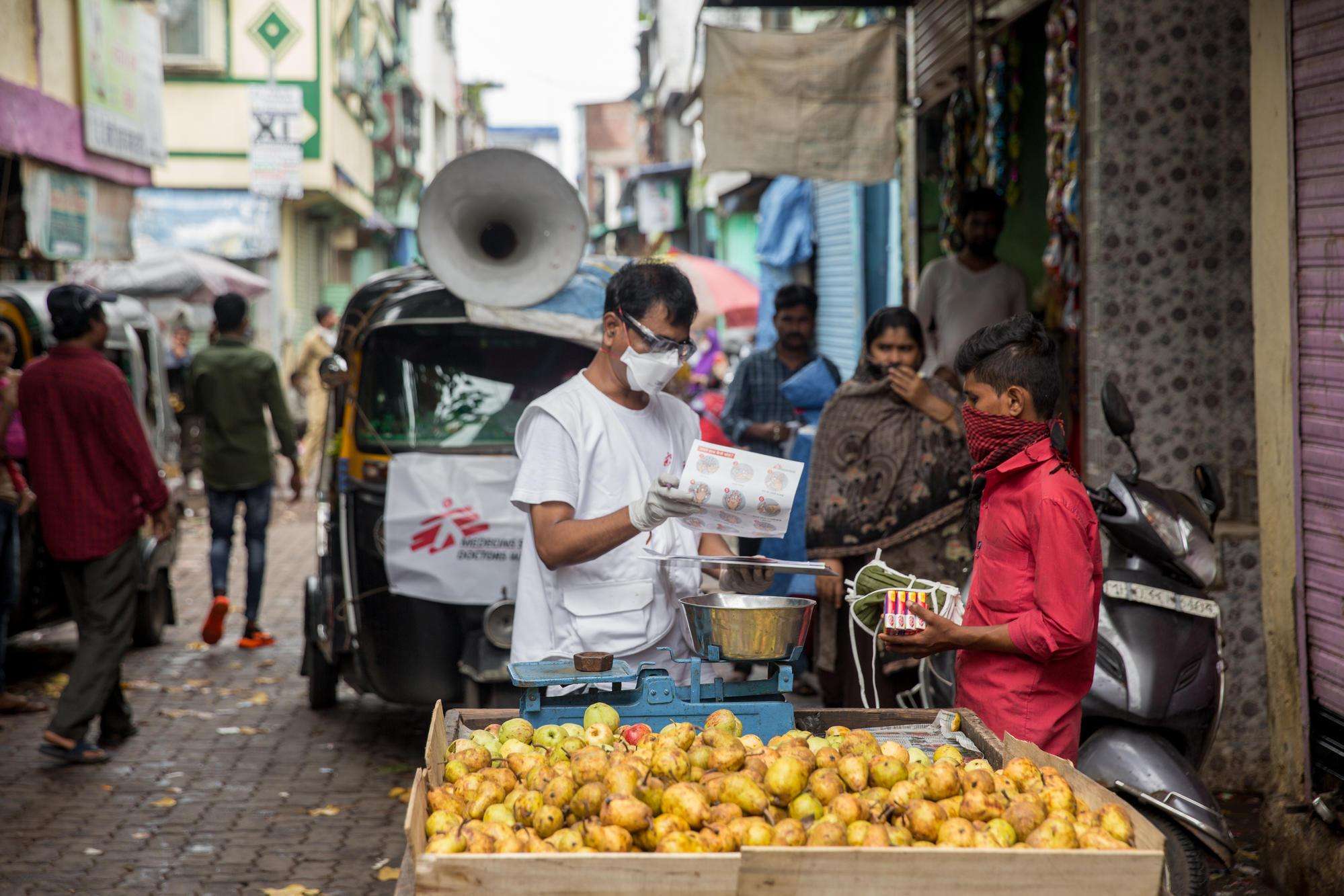The second wave of COVID-19 is reaching extremely alarming levels in India, with 329,942 daily new infections reported on May 10. MSF has scaled up its COVID intervention in Mumbai, in Maharashtra state, where the increasing numbers of COVID-19 cases have devastated the health care system and overwhelmed health care providers. Mumbai is a densely populated city, with almost 42 percent of the population living in low-income housing with poor hygiene facilities—putting them at very high risk of infection.
Health care workers are already stretched to their limits, and face increasing numbers of cases and people who need hospital beds. MSF is concerned about the risk of infection to health workers, which could further reduce India's capacity to mitigate the spread of the coronavirus.
The scale of this crisis is too big for any single actor. Our teams are trying to identify where MSF can provide additional support, especially in areas where we have existing medical projects.
Caring for COVID-19 patients in Mumbai
The current surge in severe cases of COVID-19 has increased the number of people requiring hospitalization and oxygen therapy, which is why MSF is supporting dedicated COVID health centers in Mumbai. MSF doctors and nurses are working in the BKC jumbo hospital, which currently has two 1,000-bed wings for treating COVID-19 patients. We are collaborating with the Municipal Corporation of Greater Mumbai to manage one of the dedicated Covid-19 health centers (DCHC). As of May 11, we had a team of 60 staff helping manage care for moderate and critical COVID-19 patients. The team includes anesthesia technicians, doctors, nurses, psychologists, and health educators.
The DCHC is divided into two units—phase one and phase two—each with 1,000 beds. In the phase one unit, we are managing observation and triage in six wards, which each have 28 beds where patients can receive oxygen. In the phase two unit, we are supporting four wards with 28 oxygen beds each.
MSF is also concerned about vulnerable groups, including people with medical conditions that put them at greater risk, such as diabetes, HIV, and tuberculosis. Many of these people already struggle to access timely and high-quality medical care, including oxygen therapy.
More must be done to ensure that people with COVID-19 have access to oxygen worldwide, including in India. Long-term solutions are needed to secure supply, but, in the meantime, medical oxygen must be made available urgently to health facilities battling COVID-19, particularly when the virus surges.
Vulnerable groups need access to health care
Access to health care overall is difficult. In Mumbai, COVID-19 care is organized in dedicated hospitals, but non-COVID-19 care is under severe stress during this crisis.
The virus has crippled some of the most advanced health systems in countries that have a social safety net, where most people have access to running water and space to self-isolate. This is simply not possible for many people in India and other countries where we typically work. In particular, people living in large settlements, in overcrowded conditions, with poor sanitation services, and limited access to health care can face huge risks.
MSF is undertaking precautionary measures to ensure continuity of care to 1,287 people with drug-resistant tuberculosis (DR-TB) at the Shatabdi Hospital outpatient department and at the MSF Independent Clinic. We are scaling up screening, shielding, testing, and referral activities at the hospital, community, and nine health posts. Shielding is mainly focused on protecting vulnerable groups living in informal settlements as well as people with diabetes, elderly people, TB and DR-TB patients, and patients on antiretroviral therapy (ART).
Another priority is to reach migrant workers who come to Mumbai, and the M-East Ward (MEW) in particular, to look for work. During the first wave of the pandemic, when strict lockdown measures were in place, daily wage workers were hit particularly hard. Many lost their jobs and were forced to return to their home towns and villages. For people with DR-TB, this meant interruptions to their critical treatment, as the drugs they require are often not available in smaller cities and rural areas.
This year, in order to ensure continuity of care, we are proactively reaching out to migrant workers in our patient population. We are asking them to contact us if they have to leave and to let us know where they are going. This enables our teams to send a supply of medications to their local health centers and get in touch with their local medical teams. We are also offering telephone counseling to try and help with other problems they may face, including the loss of work or difficulties obtaining their daily ration support.
We have restarted health promotion efforts as well as water and sanitation activities in the densely populated settlements of Mumbai’s M-East Ward. Health promotion at the community level is critical to preventing the most vulnerable from getting infected.
MSF is offering mental health support to help COVID-19 patients manage anxiety and worries while in isolation. We are also providing psychosocial support for our staff. Health workers are faced with the difficult situation of not just responding on the frontlines of the pandemic, but also taking care of their own families and loved ones.
Maintaining other essential health care services
MSF is also working hard to maintain regular projects in India despite the pressures of the pandemic. We continue supporting survivors of sexual and domestic violence in the capital, New Delhi, through a dedicated 24-hour clinic in Jahangirpuri district and counseling services at the local district hospital. When there are strict lockdowns during COVID-19 peaks, our teams see fewer people coming to these facilities for help. Through enhanced phone follow-up, we are managing to support many individuals from a distance.
MSF continues to provide care for people with advanced HIV in Bihar, one of the most populous states in India. Amid the growing number of COVID-19 cases in early May, we had to stop admitting new patients due to the lack of staff, many of whom were themselves self-isolating or supporting loved ones. Currently we have nine people admitted in the 20 beds we normally fill. We are seeing patients refuse to be admitted to hospital due to a fear of contracting COVID-19 in Patna, which has a serious impact on HIV patients in particular. Our medics are continuing to support patients with HIV who have contracted COVID-19 by visiting them in the hospital to ensure the continuation of their HIV medications.
Reaching people in rural areas
COVID-19 is also affecting rural areas in India. Through our clinics in Churachandpur, Chakpikarong, Moreh, and Chakpikarong, near the Myanmar border, our teams offer screening, diagnosis, and treatment, as well as counseling and health education for TB, HIV, and hepatitis C in Manipur. To help minimize the impact of COVID-19, our teams are coordinating with local health facilities and have provided hygiene supplies to refugees fleeing the crisis in Myanmar.
In Jammu and Kashmir, where years of conflict have taken a severe psychological toll on residents, counselors are providing phone-support in order to maintain counseling services. We are planning to provide support in other parts of India through an MSF Info Line as part of our emergency response.
Our teams continue to conduct mobile clinics to take primary health care to people living in remote villages in Chhattisgarh, where it is extremely difficult for people to access medical care. Our teams provide free treatment for malaria, respiratory infections, pneumonia, and skin diseases among other conditions.






